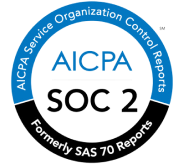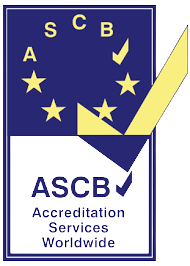Table of Content
Introduction
Understanding effective team management skills, strategies, and tips is important for continuous business success. HR leaders become influential when they can drive such teams to do better every day, despite the onslaught of AI intervention and amalgamation into our daily lives.
If you’re one of those HR leaders, you need to read this post. It will help you understand the right kind of team management skills and strategies you need to possess.
If you don’t have those as of now, build them over time. That’s one of the smartest ways for you to be in demand. You will also create a legacy of charming, performance-based, standing-out, and highly skilled teams in the uncertain job markets.
Want to skip the post?

What are the effective team management skills to possess?
Effective team management is a skill set that distinguishes exceptional leaders. To foster a productive environment, here are ten essential skills every team manager should possess:
- Communication Skills
Clear and open communication is crucial. Managers must articulate ideas effectively and listen actively to team members.
- Leadership Abilities
Leadership involves inspiring and guiding the team. A good leader motivates, sets a positive example, and provides direction when needed.
- Conflict Resolution
Addressing conflicts promptly and constructively is vital. Managers should facilitate open communication and view conflicts as opportunities for growth.
- Delegation Skills
Delegating tasks efficiently requires an understanding of each team member's strengths. It empowers team members and ensures the most suitable individuals handle tasks.
- Motivational Techniques
Motivation is key to productivity. Managers should find ways to motivate their team, whether through recognition, growth opportunities, or fostering a positive work environment.
- Time Management
Efficient time management involves setting realistic deadlines and prioritising tasks. A well-managed team respects timelines and delivers quality work promptly.
- Adaptability
In a dynamic work environment, adaptability is crucial. Encouraging flexibility and openness to change fosters an environment where the team can thrive.
- Goal-Setting Abilities
Setting clear and achievable goals aligns the team's efforts. Managers should collaborate with team members to establish SMART goals—specific, measurable, achievable, relevant, and time-bound.
- Feedback Mechanism
Constructive feedback is a powerful tool for growth. Establishing a feedback loop encourages continuous improvement within the team.
- Collaboration Skills
Encouraging a collaborative culture enhances creativity and problem-solving. Team managers should promote and create an environment where team members share their raw ideas and work together without hesitation.
What are the effective strategies to implement with low-code HR technology?
Low-code HR technology offers a streamlined approach to human resource management. Here are ten effective strategies for leveraging low-code solutions in HR:
- Automated Recruitment Processes
Use low-code platforms to automate the recruitment process, from posting job listings to candidate evaluations, speeding up hiring and reducing manual workload.
- Employee Onboarding Automation
Implement automated onboarding workflows to ensure a smooth and consistent onboarding experience for new hires.
- Performance Management Dashboards
Create dashboards that provide real-time insights into employee performance, facilitating informed decision-making for HR leaders.
- Learning and Development Modules
Utilise low-code platforms to develop and deploy training modules, enabling employees to enhance their skills and stay competitive.
- Leave and Attendance Tracking
Streamline leave and attendance tracking through automated systems, reducing errors and ensuring accurate records.
- Employee Self-Service Portals
Develop self-service portals for employees to access HR information, submit requests, and find relevant resources, enhancing efficiency.
- Customisable Reporting Tools
Implement customisable reporting tools to generate HR analytics and insights tailored to the organisation's specific needs.
- Succession Planning Workflows
Build low-code workflows for succession planning, identifying and developing potential leaders within the organisation.
- Task and Workflow Automation
Automate routine HR tasks and workflows to save time and reduce manual errors.
- Integration with Existing Systems
Ensure seamless integration with existing HR systems to maximise the efficiency and effectiveness of low-code solutions.
What are the smart team management tips to follow through at all times for HR leaders?
HR leaders help in shaping a positive work environment for their team members. Here are ten smart team management tips for HR leaders to follow consistently:
- Promote Open Communication
Foster a work culture where team members express ideas and concerns openly. Using a social intranet helps to do that without micromanagement or continuous motivational approaches to drive the team to engage.
- Invest in Employee Development
Prioritise continuous learning and development opportunities for team members to enhance their skills.
- Recognise and Reward Achievements
Acknowledge and celebrate individual and team achievements to boost morale and motivation.
- Provide Clear Feedback
Offer constructive feedback regularly, promoting growth and improvement among team members.
- Encourage Team Collaboration
Create opportunities for collaboration, fostering a culture of teamwork and shared success.
- Embrace Diversity and Inclusion
Promote diversity and inclusion within the team, recognizing and valuing differences among team members.
- Flexible Work Arrangements
Support flexible work arrangements to accommodate the diverse needs of team members.
- Implement Well-Being Initiatives
Prioritise employee well-being by offering wellness programs and initiatives.
- Stay Informed about HR Trends
Stay updated on HR trends and best practices to improve team management strategies continuously.
- Lead by Example
Demonstrate the values and work ethic expected from the team, setting a positive example for all members.
Also read: How To Lead Teams Confidently With The Best HRMS?
Conclusion
Effective team management is a nuanced blend of essential skills, strategic implementation of technology, and consistent leadership practices. A skilled team manager must adeptly navigate the intricacies of communication, conflict resolution, and motivation.
By possessing strong leadership abilities, embracing adaptability, and fostering a collaborative culture, managers can cultivate high-performing teams.
Leveraging low-code HR technology offers HR leaders streamlined processes, from recruitment to performance management, enhancing efficiency and accuracy.
With uKnowva, you can reap all those benefits from pre-hire to post-retire.
FAQs
How can a team manager enhance communication within the team?
Utilise regular team meetings, open-door policies, and collaborative tools to facilitate transparent communication.
What role does motivation play in team management?
Motivation is crucial for team productivity; it can be fostered through recognition, growth opportunities, and a positive work environment.
How can conflicts be turned into opportunities for growth?
Address conflicts early, encourage open communication, and use conflicts as learning experiences for the team.
Why is adaptability important in team dynamics?
Adaptability enables teams to respond effectively to changes in the business environment, fostering resilience and success.
How can a team manager empower team members?
Empowerment can be achieved through autonomy, trust, and providing opportunities for skill development.












